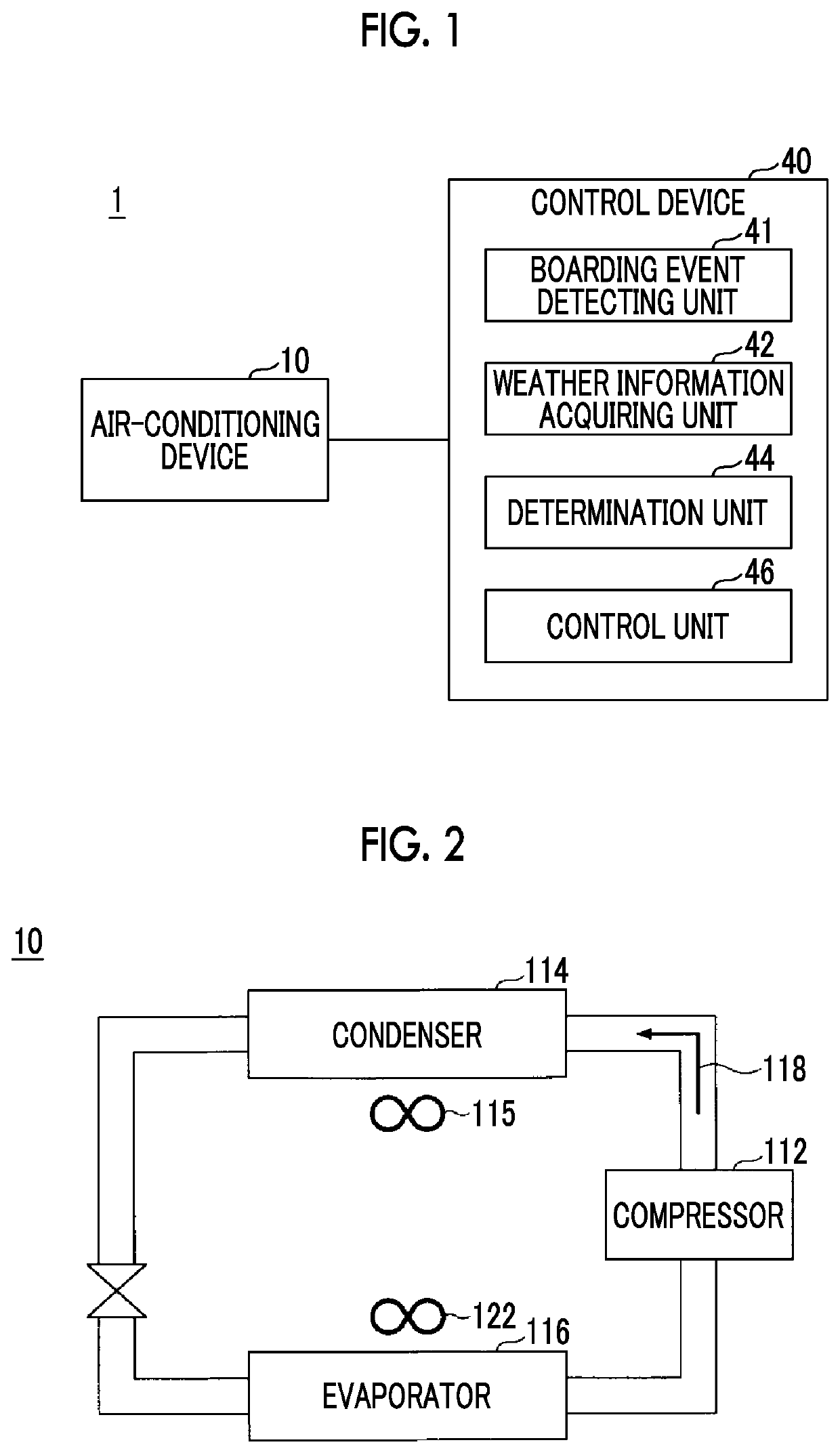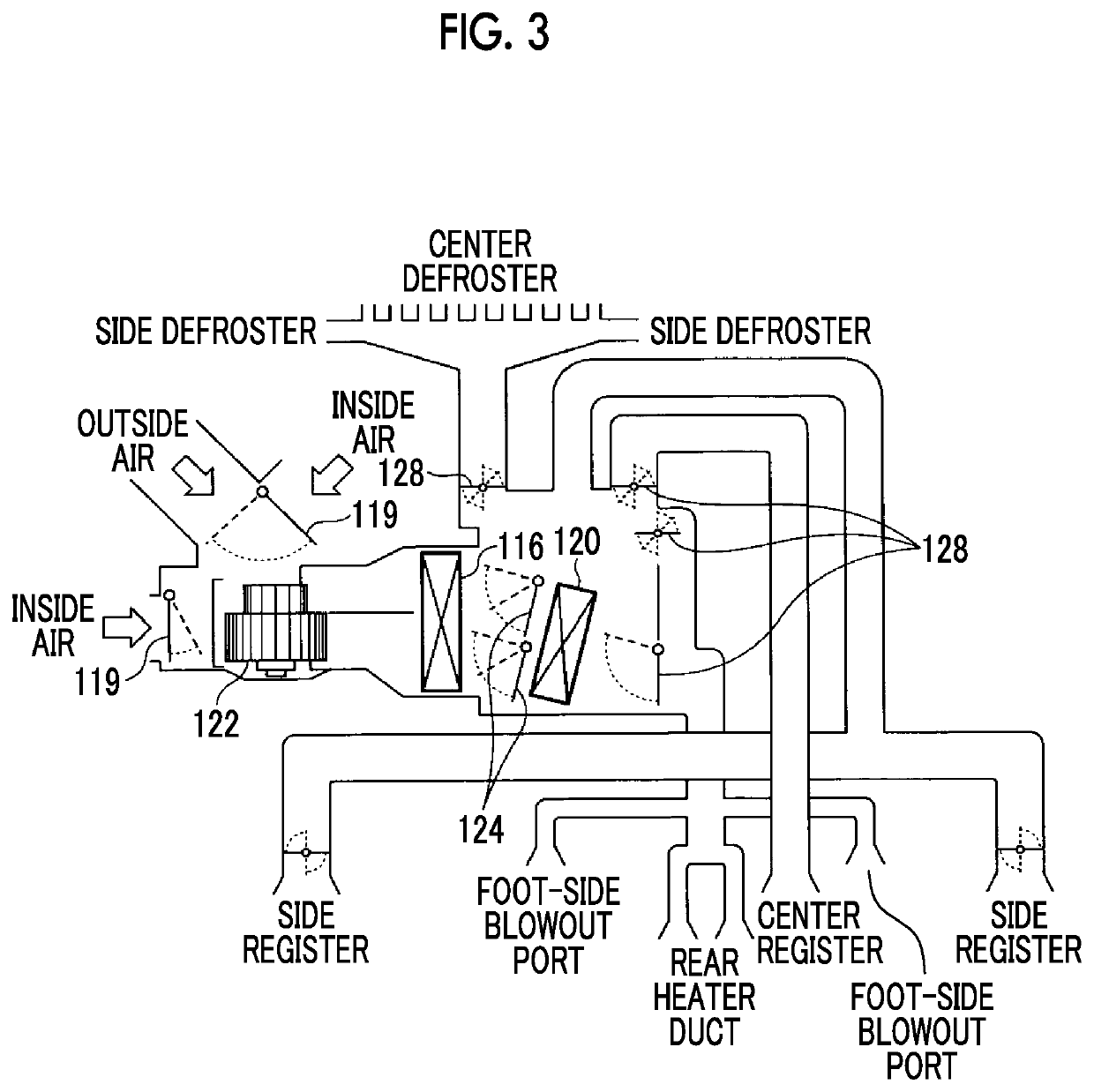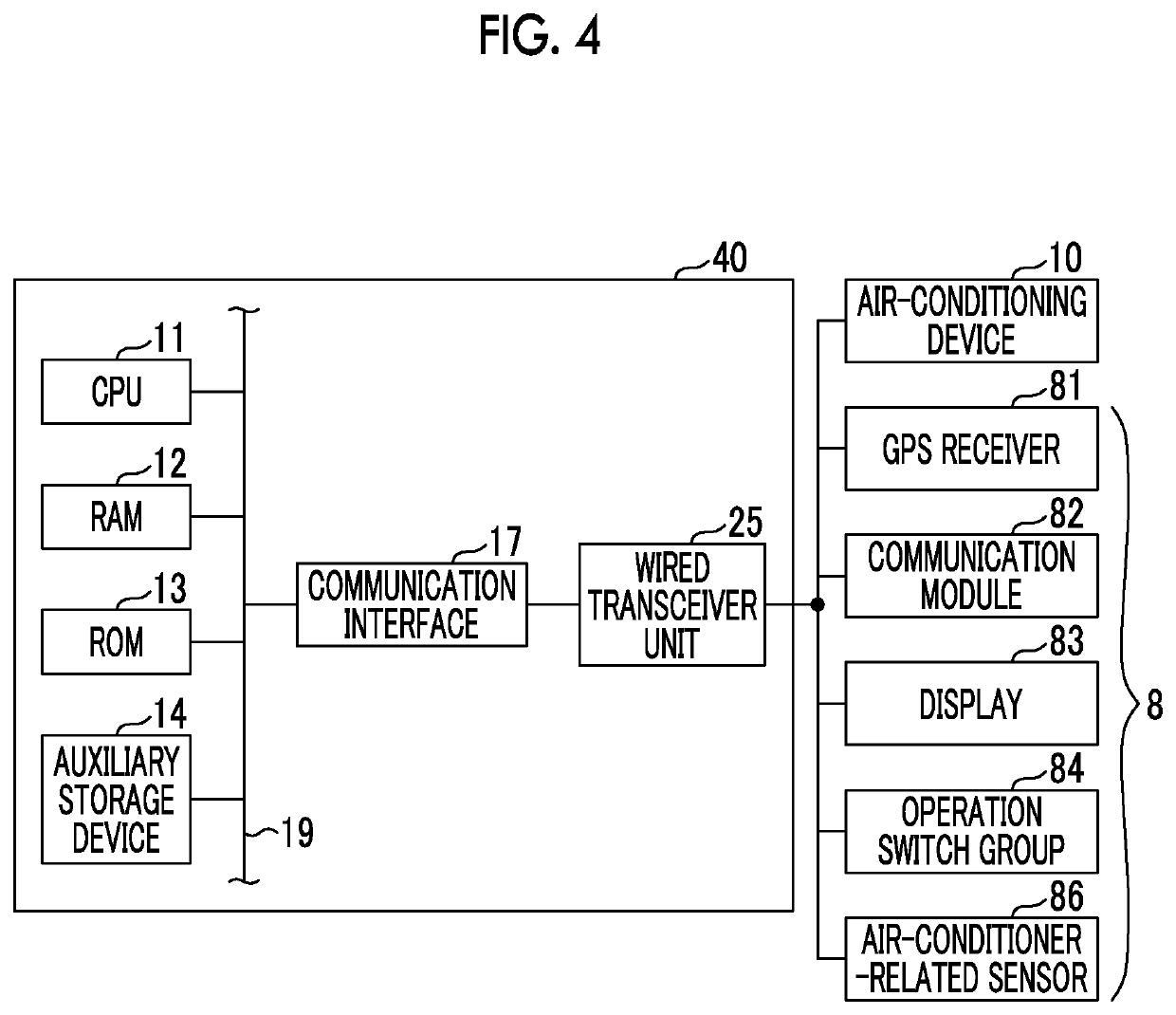Air-conditioning control system and information processing device
a control system and air-conditioning technology, applied in vehicle heating/cooling devices, vehicle components, meteorology, etc., can solve the problems of difficult to enhance the ventilation capacity of the air-conditioning device based on an amount of moisture, and achieve the effect of enhancing reducing ventilation loss, and increasing the ventilation capacity of the air-conditioning devi
- Summary
- Abstract
- Description
- Claims
- Application Information
AI Technical Summary
Benefits of technology
Problems solved by technology
Method used
Image
Examples
first embodiment
[0029]FIG. 1 is a diagram illustrating a basic configuration of an air-conditioning control system 1 according to a first embodiment.
[0030]The air-conditioning control system 1 is mounted in a vehicle. Hereinafter, the vehicle in which the air-conditioning control system 1 is mounted is also referred to simply as “the vehicle.” The air-conditioning control system 1 includes an air-conditioning device 10 and a control device 40.
[0031]The air-conditioning device 10 has a variable ventilation capacity. The ventilation capacity can be changed by changing an opening level of an outside / inside air door (for example, an outside / inside air door 119 illustrated in FIG. 3). The ventilation capacity can be changed by changing a rotation speed of a blower motor (for example, a blower motor 122 illustrated in FIG. 3) when an outside air introduction rate is greater than 0%.
[0032]FIGS. 2 and 3 are diagrams illustrating an example of the air-conditioning device 10. In the example illustrated in FI...
second embodiment
[0106]An air-conditioning control system 1A according to a second embodiment is different from the air-conditioning control system 1 according to the first embodiment, in that the control device 40 is replaced with a control device 40A and a server 90 is added. In the following description, the differences will be described, the same elements will be reference by the same reference numerals, and description thereof will not be repeated.
[0107]FIG. 10 is a diagram illustrating a basic configuration of the air-conditioning control system 1A according to the second embodiment.
[0108]The air-conditioning control system 1A includes an on-board device 7 mounted on a vehicle and a server 90 (which is an example of the information processing device). The on-board device 7 includes an air-conditioning device 10, a control device 40A, and a communication module 82 (which is an example of the communication unit). The on-board device 7 includes an on-board electronic device group 8 (see FIG. 4) i...
PUM
 Login to View More
Login to View More Abstract
Description
Claims
Application Information
 Login to View More
Login to View More - R&D
- Intellectual Property
- Life Sciences
- Materials
- Tech Scout
- Unparalleled Data Quality
- Higher Quality Content
- 60% Fewer Hallucinations
Browse by: Latest US Patents, China's latest patents, Technical Efficacy Thesaurus, Application Domain, Technology Topic, Popular Technical Reports.
© 2025 PatSnap. All rights reserved.Legal|Privacy policy|Modern Slavery Act Transparency Statement|Sitemap|About US| Contact US: help@patsnap.com



